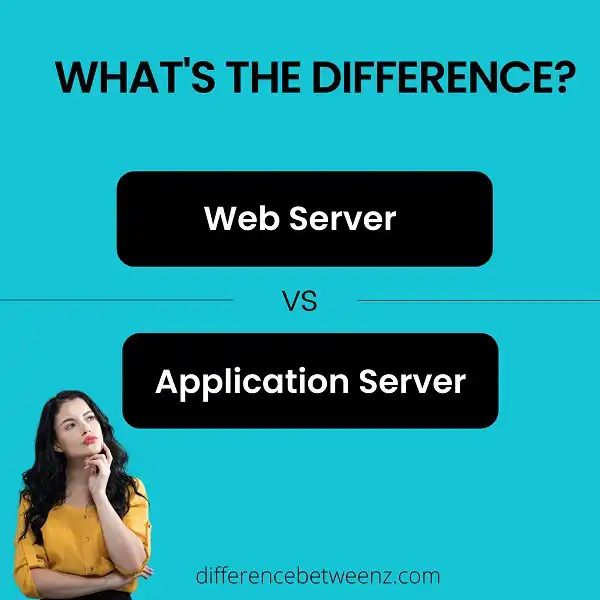Server software is used to provide functionality for websites and web applications. There are two main types of server software – web servers and application servers. While the two serve similar purposes, there are some important differences between them. In this article, we will explore those differences and explain why you might choose one over the other.
What is a Web Server?
A web server is a computer system that processes requests via HTTP, the basic network protocol used to distribute information on the World Wide Web. When you enter a URL into your web browser, your browser sends a request to the server associated with that URL. The server then fetches the requested resource from its storage and sends it back to your browser.
- Many web servers are designed to serve resources such as HTML pages, images, and style sheets, but they can also be used to provide other types of services, such as streaming media or file downloads. Not all web servers are public; some are run privately for closed networks or for individual websites.
The software that powers a web server is typically called web server software or simply a web server. Common examples include Apache HTTP Server, Microsoft IIS, and Nginx. - A web server usually runs on a dedicated computer or virtual private server (VPS) in a data center, although there are exceptions where one machine hosts both the web server software and the content.
- If you are interested in setting up your own web server, you will need to purchase or lease a physical machine and install the relevant software. Alternatively, you can use a cloud-based service such as Amazon Web Services or Microsoft Azure.
What is an Application Server?
Application Server is a server Application software that provides a platform for Application development and deployment. Application Server vendors provide an Application programming interface (API), middleware, and Application-deployment capabilities.
- Application Servers are often used in Web engineering to make dynamic Web pages. Application Servers are also used to connect legacy data from host systems to the Web.
- Many of these Application function can be performed by other means, but Application Servers provide an integrated set of these capabilities. In short, Application Server is an essential infrastructure for Web-based Application development and deployed applications.
- It should not be confused with a Web server, which is a computer program that serves content using the Hypertext Transfer Protocol (HTTP). An Application Server handles more complex requests from clients, such as those needed to run a specific piece of software on the server side.
- A Web server simply delivers the files that make up the requested Website to the user’s browser. While some Application Servers also act as Web servers, most use a separate Web server to do that job.
In addition, while some Web servers can run simple programs written in languages like Perl or PHP, they are not designed to handle the heavy lifting required by enterprise-class Application Servers.
Difference between Web Server and Application Server
- A web server is a server that delivers web pages to client computers. A web server can be either a computer program or a hardware device. A web server processes incoming network requests over Hypertext Transfer Protocol (HTTP) and serves resources such as HTML files and images.
- An application server is a platform for running applications. An application server generally provides a set of services and functions that are used by applications. These services may include storage, processing, memory, networking, and communication. Application servers are often used to host dynamic websites and web applications.
- Web servers and application servers are similar in that they both provide access to resources over a network. However, web servers primarily provide static content, while application servers typically provide dynamic content. In addition, application servers often include additional features and services beyond those offered by web servers.
Conclusion
If you’re still not sure what the difference between a web server and an application server is, don’t worry. We’ve put together a handy table that explains all the differences for you. Now that you understand the basics, hopefully you can make a more informed decision about which type of server will work best for your business.


